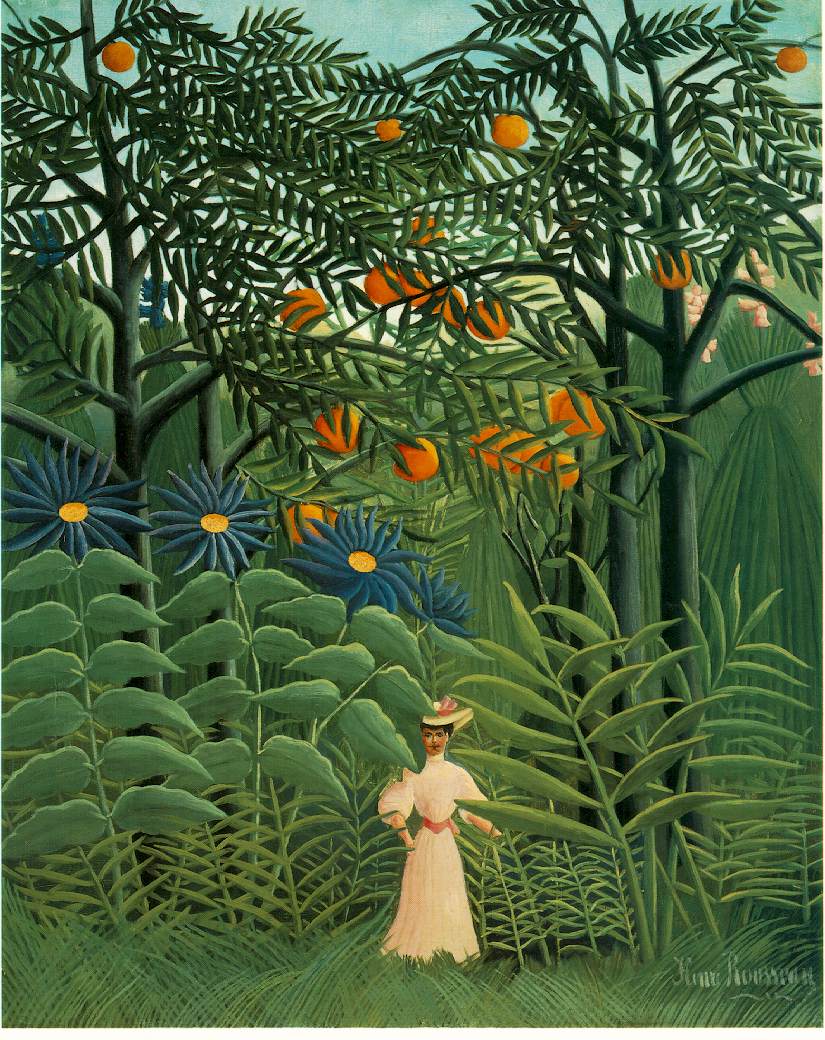One never knows what gems are going to turn up amongst end-of-the-semester essays. Sui Boriang, a student from Myanmar, is allowing me to share her ideas about Wordsworth.
I start with Sui’s story:
When I was a little, I lived in a small, poor village in Myanmar. It was in the countryside, and the living condition was very natural. We did not have any electricity or cars like an industrial country. There were lots of big trees near my house, so I used to be afraid of them because I used to think that they had some sort of powerful black magic that could possess me. I found them to be very sacred and profound because I remembered my mom told me that her friend’s husband cut down one of the tree branches, and he was found dead the next day. I believed that as the result of violating the spirit of the trees, he was punished. Basically, the environment where I grew up had a strong belief that the spirit of nature takes revenge on people if they harm it.
Sui was 12 when her family moved to Malaysia, and she would live in urban environments, first there and then in the United States, until she came to our beautiful riverside campus. She started reconnecting with nature while at St. Mary’s and then Wordsworth reminded her of her childhood experience.
In her essay, Sui first looks at Wordsworth’s sonnet “The world is too much with us.” Passages in it remind her of her childhood separation from nature, from “little we see in nature that is ours” to “for this, for everything, we are out of tune;/It moves us not.” When Wordsworth talks of looking at the sea and wishing that he were a “pagan suckled in a creed outworn” so that he could glimpse “Proteus rising from the sea;/Or hear old Triton blow his wreathed horn,” Sui thinks of the spirit of her childhood trees.
To be clear, Sui’s family was Christian, but this Christianity was intertwined with folk beliefs.
If Wordsworth’s sonnet helps Sui reconnect with childhood memories, “Intimations of Immortality” allows her to explore the meaning of those memories. The poem, as you probably recall, is about Wordsworth lamenting the fact that he no longer sees nature with the same vividness he did as a child and then positing an explanation as to why.
The reason, he believes, is because we have come far inland “from that immortal sea which brought us thither”—which is to say, from the universal soul that we leave when we are born into our individual selves (“our birth is but a sleep and a forgetting”). The glow will remain with the child for a brief time—“Heaven lies about us in our infancy”—before dwindling “into the light of common day,” and something resembling this glow infuses the child’s view of nature:
Earth fills her lap with pleasures of her own;
Yearnings she hath in her own natural kind,
And, even with something of a Mother’s mind,
And no unworthy aim,
The homely Nurse doth all she can
To make her Foster-child, her Inmate Man,
Forget the glories he hath known,
And that imperial palace whence he came.
As Sui sees it, those recollections of the trees of her childhood put her in touch with the spirit of nature that infused the trees.
Or as Wordsworth famously puts it,
To me the meanest flower that blows can give
Thoughts that do often lie too deep for tears.
Upon further reflection: One difference between Sui’s recollections and Wordsworth’s are that Wordsworth’s view of nature is largely sentimental, with nature as a benign force. Sui’s tree spirits, on the other hand, could be angry and vengeful as well. In that way, her village’s view of nature may have more in common with that found in Euripides’ The Bacchae, which we also read in the course. Wordsworth, however, was still important in getting her to understand the meaning of her childhood memories.


